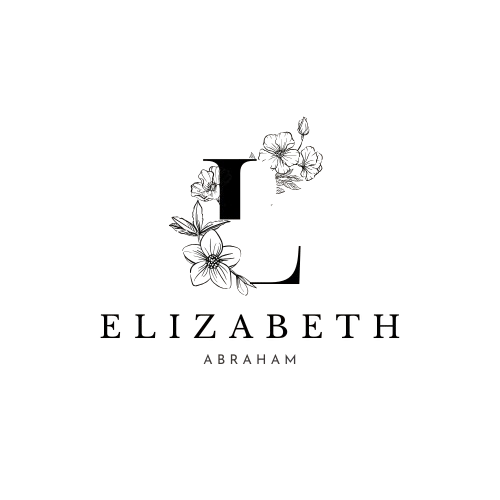


Within the dance of partnership, she finds strength in vulnerability and beauty in the harmony they create together.

mail order brides guide
How much for a mail order bride?
The question of “How much is a male order bride?” often arises during discussions that revolve around financial reciprocation in certain dating practices. While numbers can range significantly based on region and tradition, potential partners and their families frequently decide on a contribution that is fair to both sides. The amounts involved tend to reflect social practices where mutual respect and family honor are central values. It is beneficial to discuss these expectations clearly during your interactions with a potential mail order bride or her family.
Is Mail Order Brides Real?
Reputable matchmaking sites ensure that personal profiles are authentic and that users provide accurate details regarding family, education, and work. This accountability increases the likelihood that interactions will lead to meaningful relationships. When positions are built on sincerity and mutual respect, both sides can enter discussions fully aware of expectations.
Personal Stories and Advice
The accounts from individuals who have successfully connected with partners through online matchmaking platforms shed light on the authenticity of these practices. Many share that once trust is established, smooth communication transitions the relationship from digital exchanges to in-person meetings or virtual interactions that deepen understanding.
mail order brides in the united states
Lisa Ling on America and the Discussion of International Partnerships
Television programs that address international matchmaking practices often spark debate and conversation. For instance, Lisa Ling’s documentaries have opened many viewers’ eyes to the complexity of international marriages. Coverage on these topics presents discussions about genuine relationships that evolve through a respectful exchange of values. Programs have featured accounts from couples who met via online platforms designed to find bride matches. Their stories underline that families on both sides appreciate an arrangement that transcends simple stereotypes.
Lisa Ling’s work emphasizes that these arrangements come in a wide array of forms, some of which follow traditional guidelines while others adapt to modern expectations. Viewers are prompted to learn about the respectful approach taken by matchmaking sites that focus on securing sincere and lifelong partnerships. Her reporting includes personal narratives and professional observations that provide a broad perspective on international matchmaking practices. The discussions include topics such as mail a bride and bride order practices that reflect balanced exchanges and communication.
Key Considerations for Modern Digital Matchmaking

01
Authenticity
Make sure every element of your profile

02
Communication
Establish initial exchanges that build trust

03
Financial Clarity
This clarity supports clear expectations and mutual understanding

04
Flexibility
Keep discussions dynamic and focused on shared life goals
Mail order bride in United kingdom
How Much for a Mail Order Bride in UK?
The topic of costs is an important aspect when exploring options for brides or partners from abroad. In the United Kingdom, the expenses associated with meeting foreign brides vary by agency, service level, and extra features provided by matchmaking platforms. It is advisable that those who seek UK mail order brides take into account the fee structure, which may include membership, communication fees, or other administrative costs.
To assess the financial commitment
Request detailed fee outlines from reputable sites.
Review user feedback concerning expenses and the value they received.
Compare several platforms to find one that suits personal goals while offering fair costs.
Is Mail Order Brides Real in UK?
People often question the legitimacy of mail order brides in the United Kingdom. Reports and success stories confirm that the arrangements presented on trusted platforms are authentic. The method primarily revolves around two individuals from different countries meeting online, exchanging details, and planning to discover compatibility before making travel or life decisions.
To verify that the process is authentic
Examine independent evaluations of matchmaking websites.
Review the verification process for bride profiles.
Check the websites’ affiliations with recognized international matchmaking associations.
This process offers reassurance that genuine connections with foreign brides in the UK are possible when one uses top-rated, vetted online platforms. Trustworthy systems give users the opportunity to find bride options that are thoroughly evaluated by impartial third parties.
TESTIMONIAL
Our Readers Testimonial


The step-by-step guides and personal anecdotes made the process less daunting. I found my wonderful partner thanks to the strategies outlined here and our wedding was beautifully organized.
Andrew
from Leeds



LISA UK exceeded my expectations in every way. The content on finding a compatible bride and the detailed wedding planning resources were incredibly helpful.
Robert
from Edinburgh

-

How Do Asian Marriage Traditions Differ from Others?
|
Asian brides have long captured the hearts of people worldwide with their…
-

Finding Ukrainian Brides Online: A New Era of Love Across Borders
|
Ukrainian brides have captured the hearts of many with their beauty, charm,…
-

Costa Rica Mail Order Brides: Simple Way to Find Your Soulmate
|
For those looking to connect with Costa Rican brides, the concept of…
-

Brides from Brazil: The Beauty of Love in the Land of Samba
|
Brazil is a country that radiates warmth, passion, and a zest for…
-

Latin Brides: Find a Woman Who Truly Matches Your Values and Lifestyle
|
Latin brides for marriage have become a source of fascination for many…
-

Czech Republic Women and Marriage: A Harmonious Partnership
|
Prague, the enchanting capital of the Czech Republic, is a city that…
-

Polish Ladies for Marriage: Future with Grace
|
Polish brides have long been admired for their grace, beauty, and strong…
-

A Fairytale Romance with a Slavic Women for marriage
|
Slavic women have long been admired for their beauty, intelligence, and strong…
-

Exploring the Passion of Dominican Republic Brides
|
Dominican Republic brides are admired for their beauty, intelligence, and strong sense…
-

A Heart’s Journey to Thailand’s Most Beautiful Souls
|
Marrying a Thai woman is often described as a beautiful blend of…





